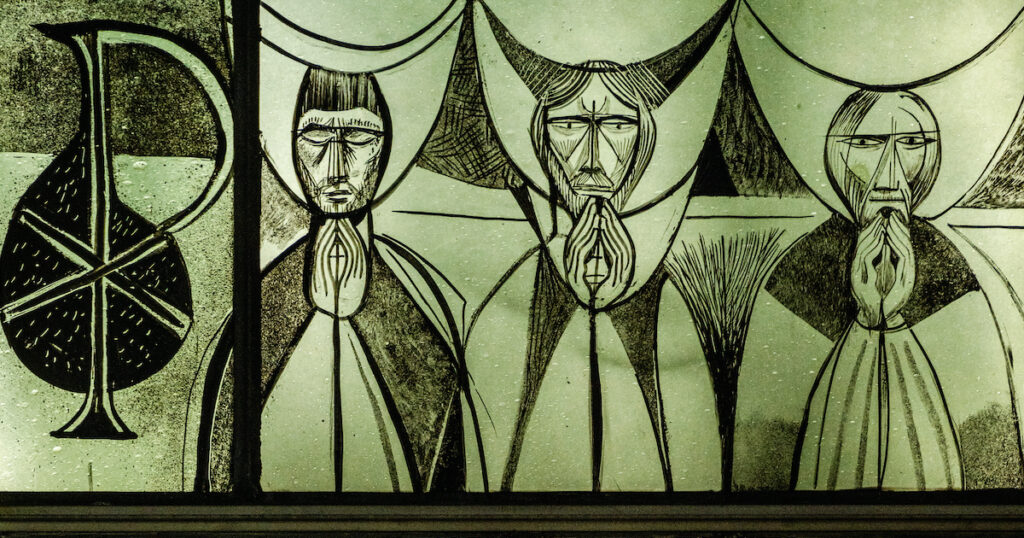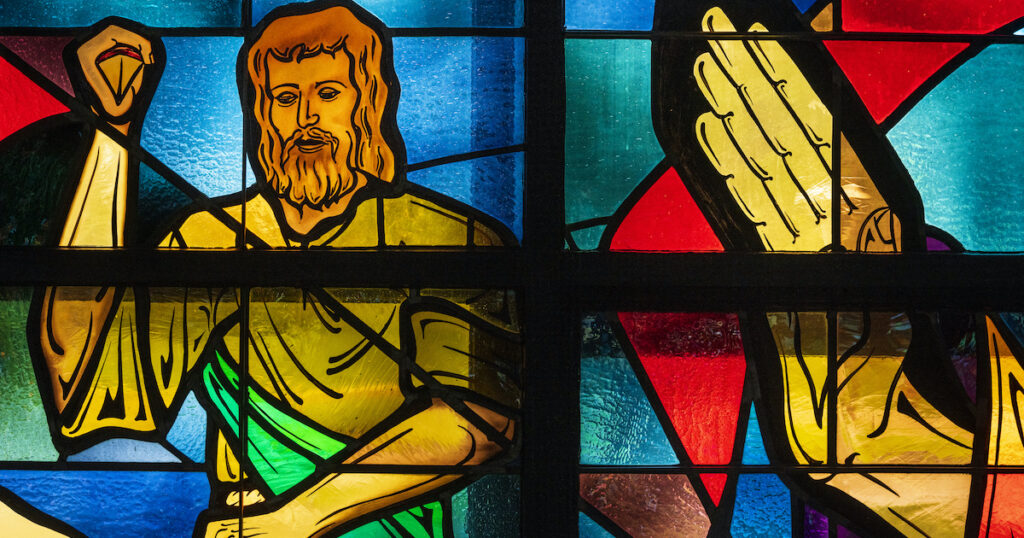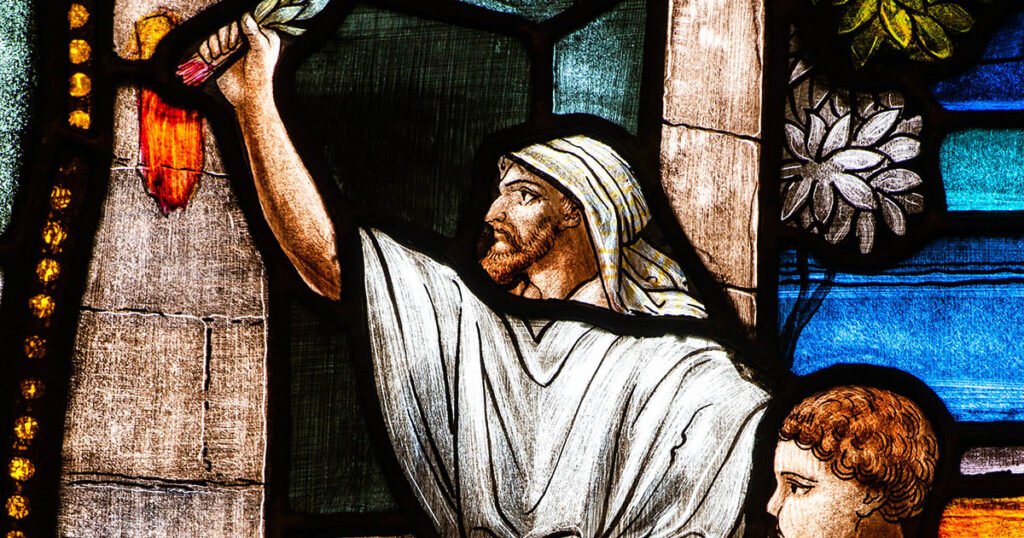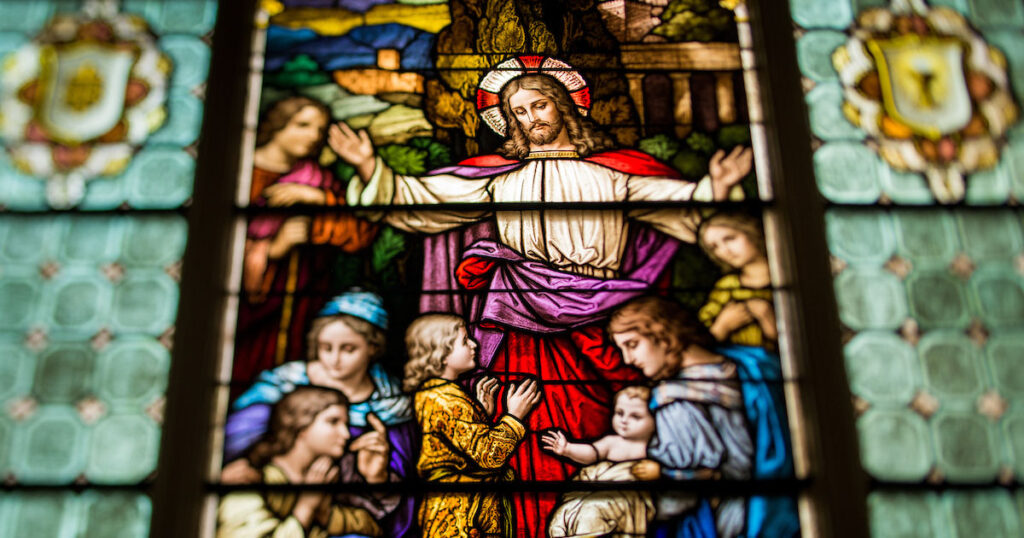In his introduction to Athanasius’ On the Incarnation, C.S. Lewis begins by saying, “There is a strange idea abroad that in every subject the ancient books should be read only by the professionals, and that the amateur should content himself with the modern books.” What Lewis wrote 75 years ago holds just as true today, if not more. We’re much more likely to read about someone or something than we are to read his writings. Lewis argues that it springs from humility. We’re afraid to meet the ancients head on, thinking that they’re so far superior to us that there’s no way we’d ever understand them. But these great men of old are great because they’re more accessible than the modern books about them.
Old books help us see things differently. It’s not to say that old books are inherently better, but they are different. They assume different things, say things differently and come to conclusions that we might never come to. And while they might be terribly wrong, how they got there is often interesting. They see things we don’t, and that’s a good thing. It may even help us to avoid a few mistakes of our own.
For the last 15 years, I’ve been enamored by the early Christian reading of Scripture. There’s a vibrancy, an excitement — it was like they saw everything differently, and oftentimes more brilliantly. Yes, I have, at times, rolled my eyes at some of the things the Early Church fathers said. But more often than not, I’m impressed by their devotion and find myself drawn into a deeply scriptural imaginary.
Who Are the ‘Fathers’ and Why Read the Old Testament with Them?
The Early Church fathers can help us read the Old Testament. We’re used to seeing the Old Testament as a witness to Christ in two ways. Either we find various prophecies that directly foretell who He is and what He will do, or we read the Old Testament not on its own terms, but projecting the New Testament’s way of words onto a much older account, keeping from the Old Testament from having its own voice. The first way of reading limits where we find Christ to select passages. The second seems to make the Old Testament of little value on its own terms. Reading the fathers helps us to break free from this either/or scenario and allows us to see Christ as not only the object of all the Scriptures, but also as the voice that speaks them into existence. For many of the fathers, the Bible ceases to be a left-to-right sort of book — where you move from the Old to the New; from Abraham and Moses and David, to Jesus and the apostles who followed. Instead, it’s more like a deeply soaked sponge, saturated with the grace of Christ crucified. And that’s not just the New Testament; for some of the earliest Christians, there wasn’t a “New Testament” per se. The Old Testament’s pages were so porous that Christ appeared everywhere.
And perhaps He was … and is.
The church fathers come from a world that’s not bound by our overly linear assumptions. They’re not forced to think that history has to move one foot in front of the next. Many of them see the world as charged with the grandeur of God. Not only do they assume a different metaphysical framework when it comes to time and history, but they also take seriously the claims of Jesus to be the eternal Word of the Father. Through the fathers, I gained a deep appreciation for the real presence of Christ in the Old Testament.
Now, it’s true that most Early Church discussions focus on the theological formulations that have shaped the church through the centuries. If we’re familiar with the church fathers at all, it’s because of the brilliant Trinitarian defense of the Cappadocians, or the way St. Athanasius put Arius in his place, defending the divinity of the Son. We’ll dabble in Irenaeus to understand some of the Early Church polity, and everyone loves Augustine’s opening lines in his Confessions, “For Thou madest us for Thyself, and our heart is restless until it rests in Thee.” St. Cyril of Alexandria set Nestorius straight and prompted our own Lutheran Confessions to insist on calling the Virgin Mary “the mother of God” (FC SD VIII 24), not to say so much of Mary, but of Jesus who was born from her.
Interestingly, noticing all the references to Cyril in our Confessions — particularly the Catalog of Testimonies — shuffled me along his way. He wrote a definitive response to Nestorius through a series of anathemas, as well as beautiful testimony On the Unity of Christ. But as I dug deeper into St. Cyril, I discovered that of the 10 volumes of his writings still preserved in the original Greek, seven of them are devoted to purely scriptural commentary and preaching. And from Cyril, I quickly realized how expansive the early Christian commentary on Scripture is. And the majority isn’t commentary on the New Testament, but on the Old.
So, if you’re willing to dive into the Old Testament with these old books, reading familiar stories from a different vantage point, then you’re in for a treat. Our goal here isn’t merely to introduce you to some old friends that you never knew you had. Nor is it to simply broaden your academic pursuit or expand your biblical commentaries. Ultimately, what I love most about the fathers I said above: They believe that Christ is in Scripture, throughout Scripture and the very voice of Scripture itself. With this sort of real presence of Christ in the Old Testament, you’ll find these texts far richer than a series of morals or even a mere historical prelude to something bigger and better. You’ll find that Christ Jesus who spoke to the prophets of old, through the prophets of old, will also speak to you. And the Old Testament will seem to come alive; but of course, it already is (Heb. 4:12).
If you really insist on reading some books about the Early Church fathers, then I’ll offer a few of my favorites.[1] But, like C.S. Lewis says, “first-hand knowledge is not only more worth acquiring than second-hand knowledge, but is usually much easier and more delightful to acquire.” And a bit later on he says, “It is a good rule, after reading a new book, never to allow yourself another new one till you have read an old one in between” — that’s a rule I try to follow.
[1] Hans Boersma, Scripture as Real Presence: Sacramental Exegesis in the Early Church (Grand Rapids: Baker, 2017); Jean Daniélou, From Shadows to Reality: Studies in the Biblical Typology of the Fathers, trans. Dom Wulstan Hibberd (London: Continuum, 1960); Henri De Lubac, Medieval Exegesis, 4 vols., trans. Mark Sebanc (Grand Rapids: Eerdmans, 1998); Robert M. Grant and David Tracy, A Short History of the Interpretation of the Bible, 2nd ed. (Minneapolis: Fortress Press, 1984); Ronald E. Heine, Reading the Old Testament with the Ancient Church: Exploring the Formation of Early Christian Thought (Grand Rapids: Baker, 2007); John J. O’Keefe and R.R. Reno, Sanctified Vision: An Introduction to Early Christian Interpretation of the Bible (Baltimore: The Johns Hopkins University Press, 2005); Robert L. Wilken, The Spirit of Early Christian Thought: Seeking the Face of God (New Haven: Yale University Press, 2003); and Frances Young, Biblical Exegesis and the Formation of Christian Culture (Cambridge: Cambridge University Press, 1997).






Do you have a list of church fathers you recommend?
Thanks Father Geoff for this concise and insightful invitation to read the scriptures and the “old” books before incessantly reading that which is trendy and new! I am encouraged and inspired! Jesse Penna